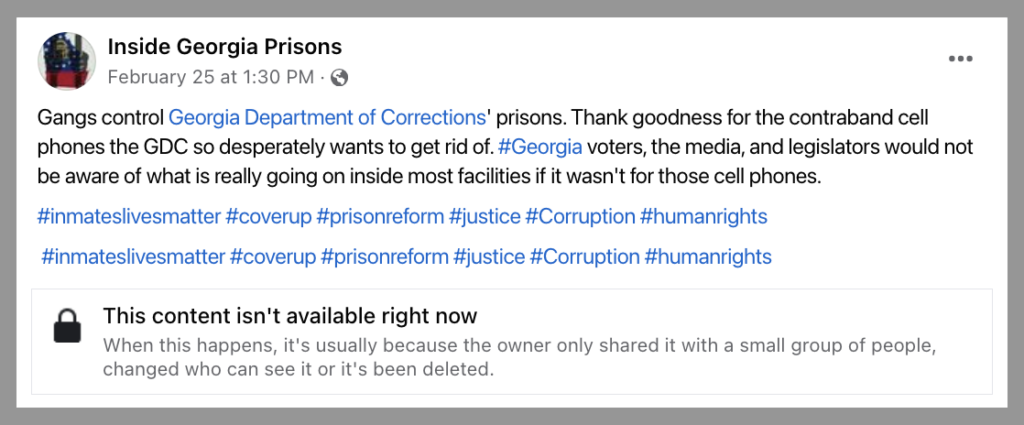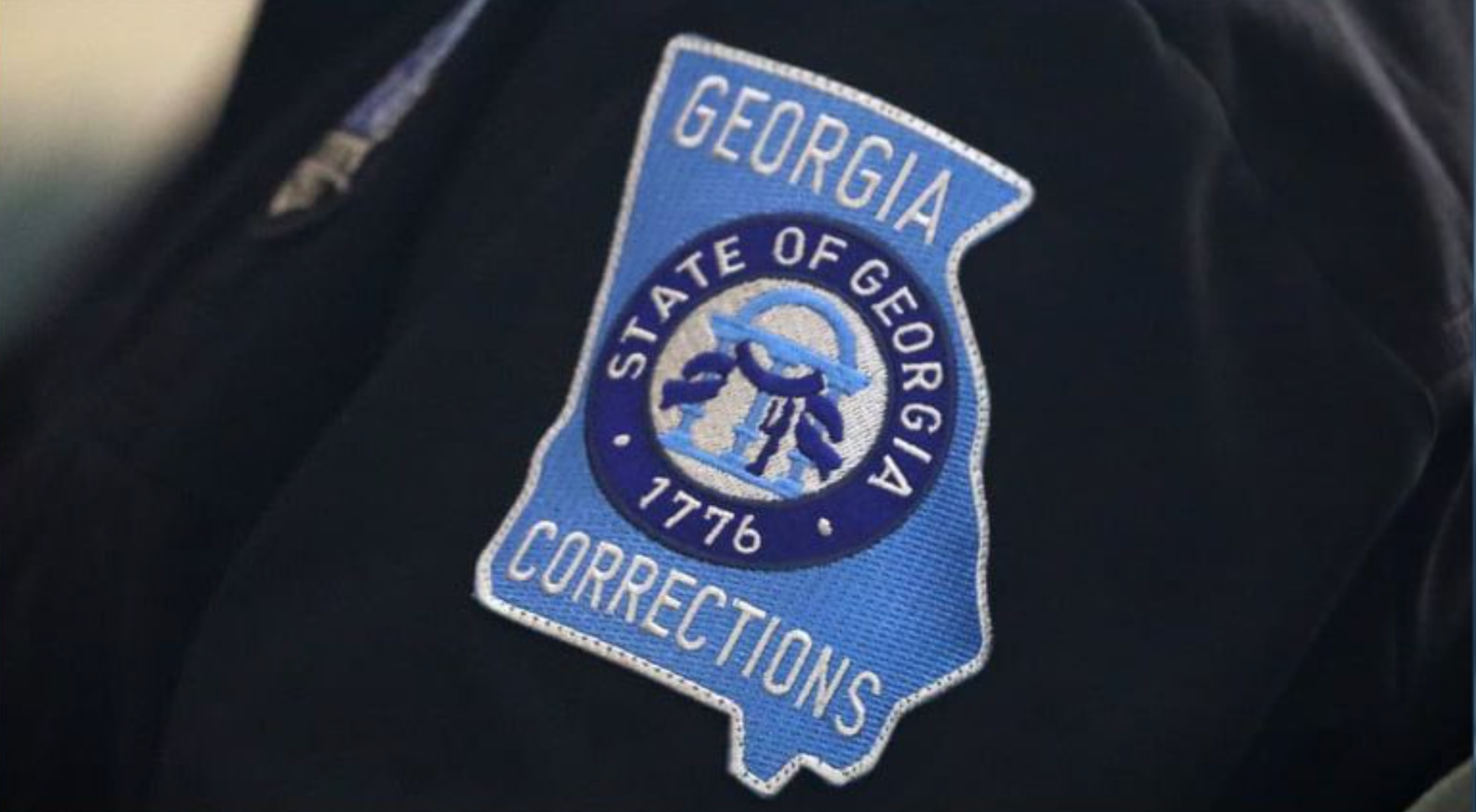The Georgia Senate has contemplated the bloodbath unfolding inside its state prisons and concluded that “a study would be beneficial.” Perhaps not to those of us who have to live and die in these facilities, but possibly to the legislators and prison administrators and media outlets who have lined up behind the narrative that contraband cell phones are the problem.
In late February, the Georgia Senate approved a resolution to create the Senate Supporting Safety and Welfare of All Individuals in Department of Corrections Facilities Study Committee, which does not sound like the name of a group that intends to be particularly hands-on. The seven-member committee will “examine current issues impacting the ability of the Department of Corrections to operate secure and safe facilities” until December 1, when it disbands. It may file a report with some recommendations, but it isn’t required to.
“What I want to do is take the prison system down to the foundation and look at every component within the Georgia Department of Corrections and basically inspect it, and look at it, and see if we’re doing it in the best way possible,” resolution sponsor Senator Randy Robertson (R) told the Atlanta Constitution-Journal.
This is an optimistic characterization. Since the 2020 mass exodus of corrections officers, the explosion of homicides and suicides inside GDC facilities has prompted investigation by the Department of Justice.
It’s already built into the resolution that the issue inside Georgia Department of Corrections (GDC) facilities is understaffing. The brief introduction lays out that GDC incarcerates more than 50,000 people, under direct supervision of 7,527 employees in 2020, but only 5,546 by 2022. Of course, it would come as no surprise if the Senate Supporting Safety and Welfare of All Individuals in Department of Corrections Facilities Study Committee ended up concluding that the issue is contraband cell phones.

In February, the state’s mid-year budget was advanced with $9.8 million allocated for cell phone signal jammers.
“Everybody has heard about the cell phones in the prisons and what a problem that causes,” Rep. Bill Hitchens (R) reportedly stated at a budget meeting.
The problem he’s really referring to is that of prisoners using the phones to send inside video to outside contacts, who post the footage to social media. GDC had not responded to Filter‘s request for comment at publication time.
For years, authorities have been selling the public on the idea that contraband cell phones are the catalyst for violence, rather than the means of exposing it (never mind that the staff are the ones bringing in the phones in the first place). Therefore we must funnel more money toward stamping them out once and for all. Meanwhile, ACJ‘s investigations into prison conditions reliably include a hearty portion of carceral propaganda about prisoner cell phones and what a nuisance they are to GDC.
Options? You’d think the obvious answer would be to pay them more to stay on the job.
The problem is too many people locked together in cages, with not enough people overseeing their safety. Options? We could try paying corrections officers more to stay on the job. But that already hasn’t worked: The 2019 starting salary of $31,040 has since been raised to $44,044, and the result is merely that GDC is losing staff more slowly.
Higher salaries don’t make thousands of corrections officers materialize to instantly fill the empty posts. New hires are still walking into a workplace of violence and despair, which is why they walk by the end of the month, assuming they’ve not been arrested for smuggling in cell phones first.
“There is no magic wand that wipes away the concerns surrounding our prisons overnight,” GDC Commissioner Tyrone Oliver wrote in a January 27 op-ed published by AJC.
Isn’t there? If you can’t sufficiently increase the number of corrections officers, you can decrease the number of people they’re responsible for.
Unless Oliver’s referring to concerns other than the safety and wellbeing of staff and prisoners, releasing the thousands of people who are parole-eligible yet still behind bars is the obvious way forward. Why not? They are, after all, already eligible for release. Letting them go home would get them out of harm’s way while reducing the prison population to a size that staff is much better equipped to supervise. We could have told you that without spending $9.8 million.
Top image via Georgia Department of Corrections. Inset image via Inside Georgia Prisons.





Show Comments